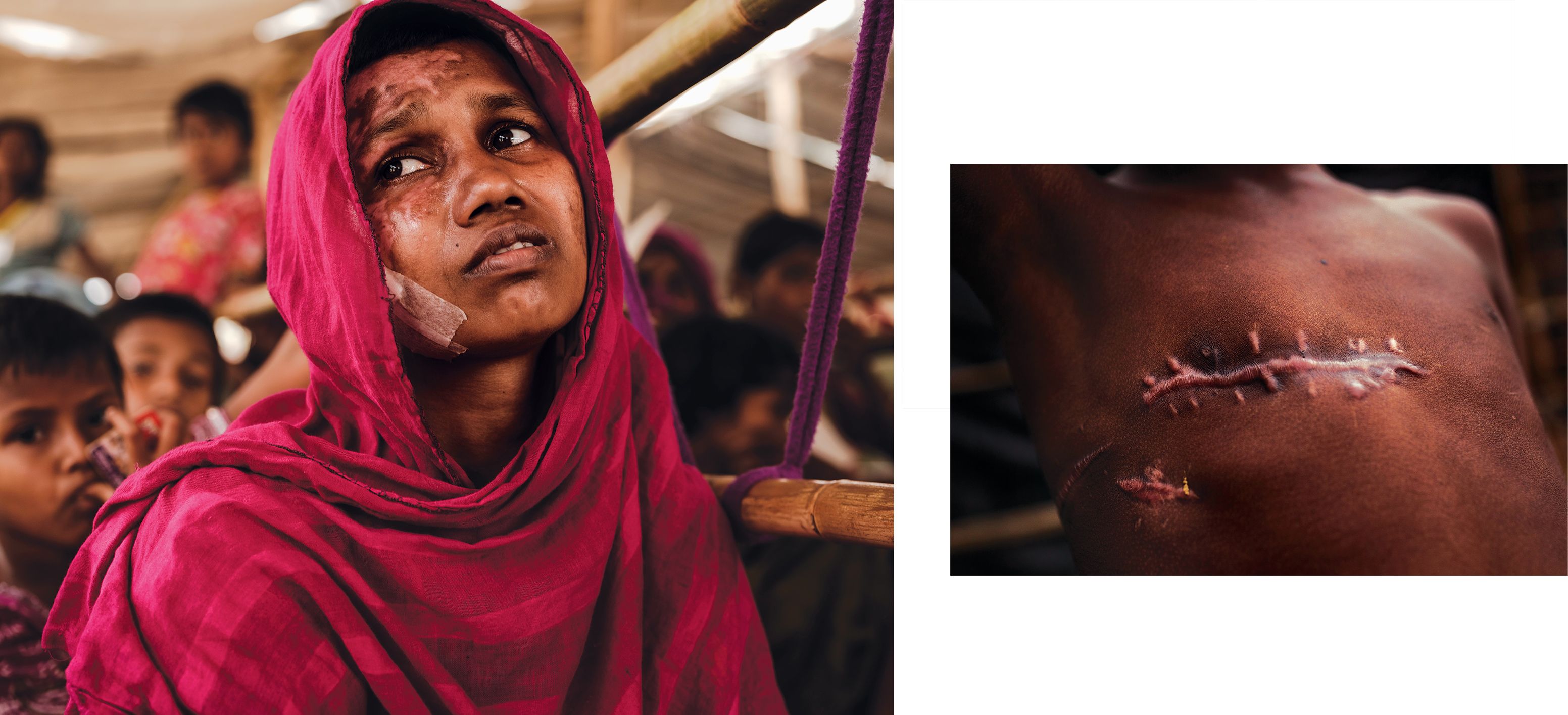
This letter features reporting from "The Survivors of the Rohingya Genocide" by Jason Motlagh, Mark Oltmann, and Patrick Brown
Dear Adam Kinzinger,
Can you imagine watching innocent children being beheaded as they run from gun-wielding soldiers? Can you imagine watching your newborn child being thrown haphazardly into a fire? Can you imagine hearing the screams of your friends and family as they are being raped and brutally murdered? These terrifying situations are a reality for the 800,000 to 1,100,000 Rohingya who have fled Myanmar in order to escape the systematic violence perpetrated against them by the military. As discussed in the article "The Survivors of the Rohingya Genocide" by journalists Jason Motlagh, Mark Oltmann, and Patrick Brown, the Rohingya are considered the "world's most persecuted minority," as they have been denied citizenship and basic human rights as a result of their religious beliefs. Although their descendants can be traced back nearly 1,000 years, the Rohingya often face marriage restrictions, limited access to education, and inadequate health care resources. The genocide of the Rohingya can be demonstrated by refugees with "gaping gunshot wounds, women with shredded limbs, a newborn with a bullet graze on his head, and countless orphans" who have escaped to neighboring Bangladesh. Although nearly 90% of the Rohingya population has been pushed out of Myanmar's Rakhine state, refugee encampments are often rampaged by diseases and are grossly overcrowded. The countless heartbreaking stories specified in "The Survivors of the Rohingya Genocide" illustrate how the Rohingya crisis is one of imperative importance and needs to be addressed.
The mass exodus of the Rohingya is resulting in one of the most dangerous and profound refugee problems to date. Although this situation does not directly affect me, it is our job as humans to seek a resolution to this pressing issue. Thousands of innocent people have been murdered or driven from their homes, and people in power need to do more to aid this situation. The Rohingya crisis is of the utmost importance to me because no person deserves to have their life completely destroyed because of their religious or personal beliefs. Off the record, several diplomats have discussed their abhorrence regarding the atrocities committed by Myanmar's military, though they have not publicly denounced these crimes. In addition, many nations are unwilling to risk their relationship with Myanmar, thus have practically ignored the issue at stake. As a congressman, you have the power to raise awareness about the ongoing ethnic cleansing of the Rohingya people. This crisis has also been consistently overlooked and outshined by the pertinent Syrian refugee crisis. In order to bring more attention to this issue, information about the Rohingya must be publicized and shared by someone in your position.
Although you are just one person, you have the ability to communicate with and try to convince organizations such as the HRC and UNHCR to take a more hands-on approach to this situation. These organizations have enough monetary resources to provide humanitarian aid and safer routes for the Rohingya to reach refugee camps in neighboring countries. This may not solve the Rohingya crisis, but it is a step in the right direction. As a person in a place of power in our government, you have the capacity to support those who are in desperate need of help.
Sincerely,
Anabelle Manrique

Anabelle Manrique is an 11th grade student at Walter Payton College Prep in Chicago, Illinois. In addition to being extremely academically driven, Anabelle enjoys being a part of team-building communities such as lacrosse, mixed-race club, and youth wellness team, spurring her passions for inspiring and helping others. Anabelle enjoys writing in her free time as a creative outlet to express her opinions and to help alleviate worldly issues she encounters.